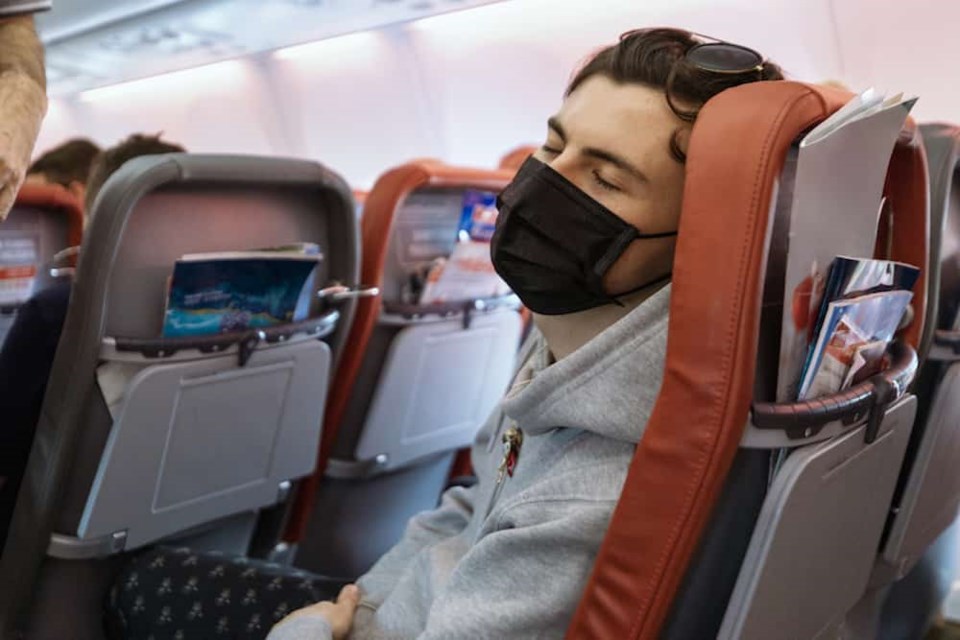The British Columbia Centre for Disease Control (BCCDC) on Friday added six more Vancouver flights to its COVID-19 public exposures list.
The public health agency is warning passengers who recently travelled aboard the following Air Canada flights that they may have been exposed to the virus responsible for creating the ongoing global pandemic.
- Oct. 23 - Air Canada flight 123, Toronto to Vancouver (Affected rows 26-30)
- Oct. 24 - Air Canada flight 215, Calgary to Vancouver (Affected rows 24-29)
- Oct. 24 - Air Canada flight 8198, Vancouver to Kamloops (Affected rows 8-14)
- Oct. 25 - Air Canada flight 248, Vancouver to Edmonton (Affected rows 16-22)
- Oct. 25 - Air Canada flight 855, London to Vancouver (Affected rows 18-23)
- Oct. 28 - Air Canada flight 551, Los Angeles to Vancouver (Affected rows 22-28)
The update comes following Thursday's additions to the BCCDC's list, which included the flights:
- Oct. 18 - Air Canada 8209, Vancouver to Prince George (Affected rows 8-14)
- Oct. 18 - Air Canada 8575, Saskatoon to Vancouver (Affected rows 1-4 and 12-14)
- Oct. 25 - Air Canada 192, Victoria to Toronto (Affected rows 1-4)
The health agency asks any passengers who travelled on a domestic flight flagged for carrying a COVID-19 case to self-monitor for symptoms for 14 days following their potential exposure.
Any passengers who have travelled outside of Canada, meanwhile, are required to self-isolate and self-monitor for symptoms for 14 days upon their arrival. The government continues to discourage international travel at this time.
Any returning travellers who develop symptoms following their arrival in Canada should get tested for COVID-19. These individuals will also be required to self-isolate for a minimum of 14 days from their arrival date, or 10 days after onset of symptoms, whichever is longer.
While self-monitoring for symptoms of COVID-19— i.e. fever, cough, chills, sore throat, loss of sense of smell or taste and many more—individuals should take and record their temperature daily, and avoid taking fever-reducing medications like acetaminophen or ibuprofen if possible, for 14 days following their return to Canada or last known exposure to a confirmed COVID-19 case. The average normal body temperature taken orally is about 37°C, according to the BCCDC.
For more information about self-monitoring and self-isolation, head to the BCCDC's website.



